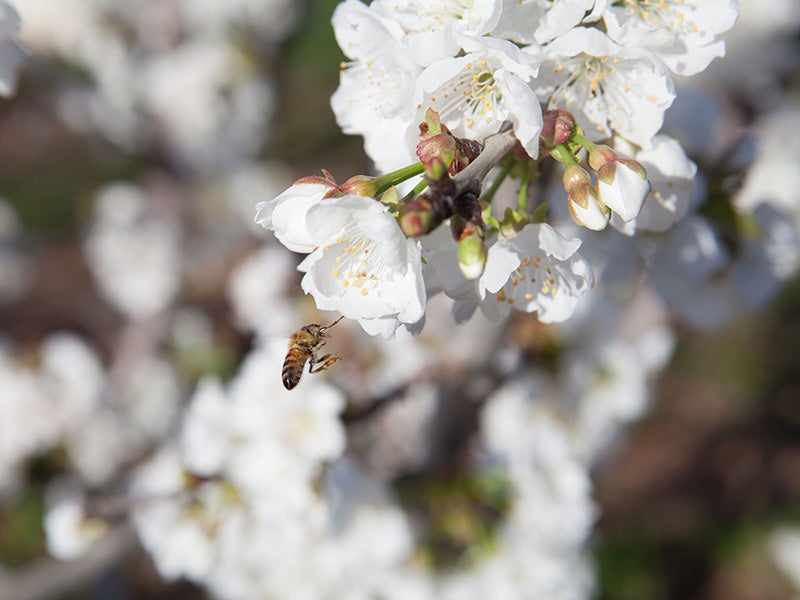Green Leaders Urge President To Ban Bee-Killing Insecticides
EPA moving too slowly, letter says
Contact
Top officials of leading environmental groups representing millions of Americans today urged President Obama to take strong and swift action against neonicotinoid insecticides that are devastating honey bee and wild bee populations, threatening the nation’s food supplies.
In a letter to the White House, the 11 groups called on the president to immediately suspend neonicotinoid use, take steps to curb their adverse impacts and to have his administration close a legal loophole which allows the insecticides’ sale before they are adequately assessed for safety. The letter comes three weeks after over 100 businesses, many of which are members of the American Sustainable Business Council and the Green America Business Network, sent a similar plea to the president.
“We hope that you will prioritize action on this issue of vital importance to our food system, economy and environment and make saving bees a key piece of your legacy as president,” the letter said. It was signed by Trip Van Noppen, president of Earthjustice</strong>; Peter Lehner, executive director of the Natural Resources Defense Council</strong>; Erich Pica, president of Friends of the Earth U.S., and nine other green CEOs.
Citing “a significant loss” of bees and other pollinators, the president in June 2014 created an interagency Pollinator Health Task Force, co-chaired by the Environmental Protection Agency and the Agriculture Department, and gave it 180 days to develop a National Pollinator Health Strategy. The task force missed its December deadline, and is now expected to release a strategy paper in the coming weeks.
The letter charges that the EPA is unable “to properly regulate insecticides impacting bees,” and notes the “EPA announced it will not release a regulatory decision on neonicotinoids before 2016.” The letter urges the president to speed up the review of neonicotinoids (often called neonics) and hasten the development of better tests for the insecticides’ effect on bees.
“If current rates of bee die-offs continue,” the letter says, “it is unlikely that the beekeeping industry will survive EPA’s delayed timeline, putting our agricultural industry and our food supply at serious risk.”
Also, according to the letter, “EPA has allowed millions of acres of crop seeds treated with neonicotinoids to be planted annually with no registration of the pesticide-treated seeds and no enforcement against them in cases of misuse.” Bees are critical for pollinating dozens of important American food crops, and contribute nearly $20 billion to the U.S. economy annually.
Neonicotinoids, often applied to seeds before planting, are particularly dangerous for bees because they poison the whole plant, including the nectar and pollen which bees eat. At very high doses, they can kill bees directly; but they more commonly affect and impair bees’ ability to breed, forage, fight disease and survive the winter, scientists say. Yet a recent EPA analysis found that neonicotinoid treatment on soybean seeds offers little or no economic benefit to soy producers.
The U.S. Fish and Wildlife Service will phase out use of neonics on wildlife refuges by 2016, the European Union has a two-year ban on the most widely used neonics, and several states, cities, universities, retailers, and the Canadian province of Ontario have taken action against neonics.

Additional Resources
About Earthjustice
Earthjustice is the premier nonprofit environmental law organization. We wield the power of law and the strength of partnership to protect people's health, to preserve magnificent places and wildlife, to advance clean energy, and to combat climate change. We are here because the earth needs a good lawyer.